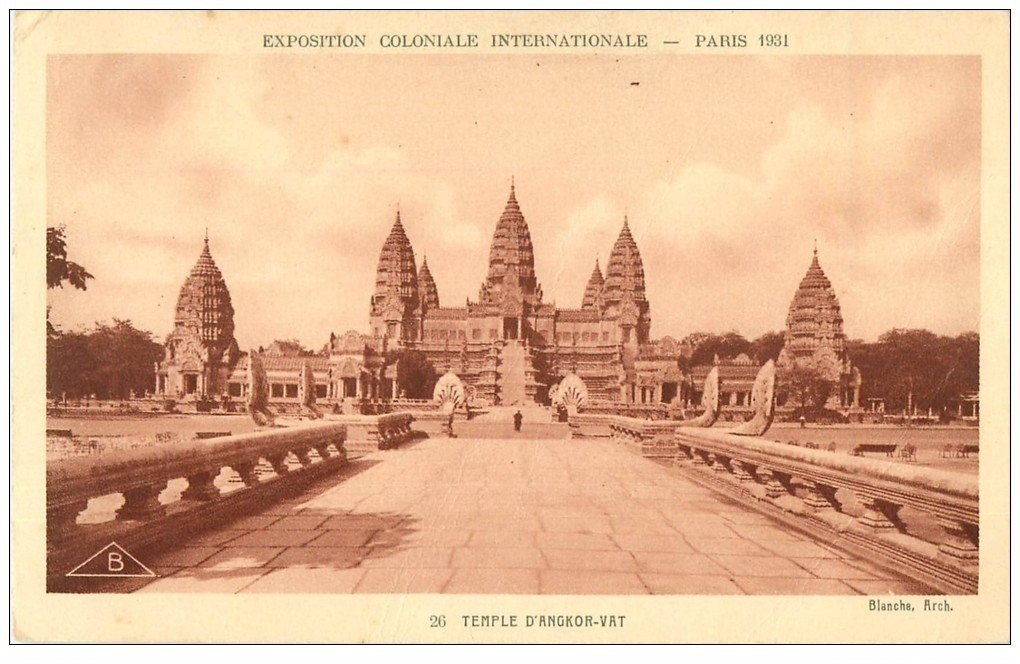Wednesday, 17 April 2024
16.00-17.00 BST – Zoom Webinar (Register via Eventbrite here)
This Masterclass is jointly offered by the Scottish Centre for Conservation Studies (SCCS) and Una Europa Self-Steering Committee for Cultural Heritage and is also part of the Festival of Cultural Heritage Research 2024
World heritage and global circulations. The case of Angkor, Cambodia
World Heritage sites are caught in a permanent tension between local and global. Fully integrated into global systems (World Heritage institutions, international protection and conservation standards, international heritage experts, international tourists, etc.) they are, at the same time, invested in by local communities living in their vicinity, often within the protected perimeter. The values attributed by some or the others are not always the same. The ‘universality’ of Outstanding Universal Value (OUV), the basis of World Heritage sites, is increasingly being challenged.
The tensions between local and global are not just technical and managerial; they are also symbolic and conceptual. In a context of international circulation (of concepts, experts, standards, images and imaginaries, etc.), heritage is not always the product of an endogenous recognition process. It is increasingly the result of circulating views, approaches, emotions and knowledge. As a result, far from the ideal scheme whereby heritage is a bottom-up process, emanating from local communities, heritage is often identified and recognised by these international elites (technical, intellectual, artistic, tourist, etc.). The lecture will analyse this process of heritage development through global circulation – the globalisation of heritage.
It will focus in particular on the case of Angkor, a UNESCO World Heritage site, the conservation of which is overseen by an International Coordination Committee (ICC). The ICC coordinates scientific, restoration, conservation and tourism management projects between thirty countries and a group of international experts. The wide range of countries involved, each with its own approaches, doctrines and conservation and management tools, makes Angkor a unique laboratory for contemporary heritage globalisation.

Maria Gravari-Barbas
Maria Gravari-Barbas is full time professor of cultural and social geography at IREST, Paris 1 Pantheon-Sorbonne University. She has a degree in Architecture and Urban Design (University of Athens) and a PhD in Geography and Planning (Paris IV – Sorbonne). She was Fellow at the Urban Program of Johns Hopkins University, Baltimore, USA. She is the Director of the EIREST, a multidisciplinary research team dedicated to tourism studies, with main focus on cultural heritage, development, and urban-tourism evolutions. Since 2009 she is the director of the UNESCO Chair of Paris 1 Panthéon-Sorbonne University and the coordinator of the UNITWIN network ‘Tourism, Culture, Development’. She is the Chair of the Self Steering Committee of Cultural Heritage of Una Europa and of the Joint Doctoral Committee of the PhD on Cultural Heritage of Una Europa.
Her published works include:
Tourism & Fashion. Parallel Stories, Emerald (2023), Tourism and architectural simulacra, Routledge, (2021); Tourism Dynamics in Everyday Places: Before and After Tourism, Routledge, 2021; A research Agenda for Heritage Tourism, Elgar (2020), Le patrimoine mondial, Mise en tourisme, mise en images, L’Harmattan (2020), Lieux ordinaires, avant et après le tourisme, PUCA (2018), Tourism and Gentrification in Contemporary Metropolises. International Perspectives, Routledge (2017), World Heritage Sites and Tourism. Global and Local Relations, Routledge (2017).

